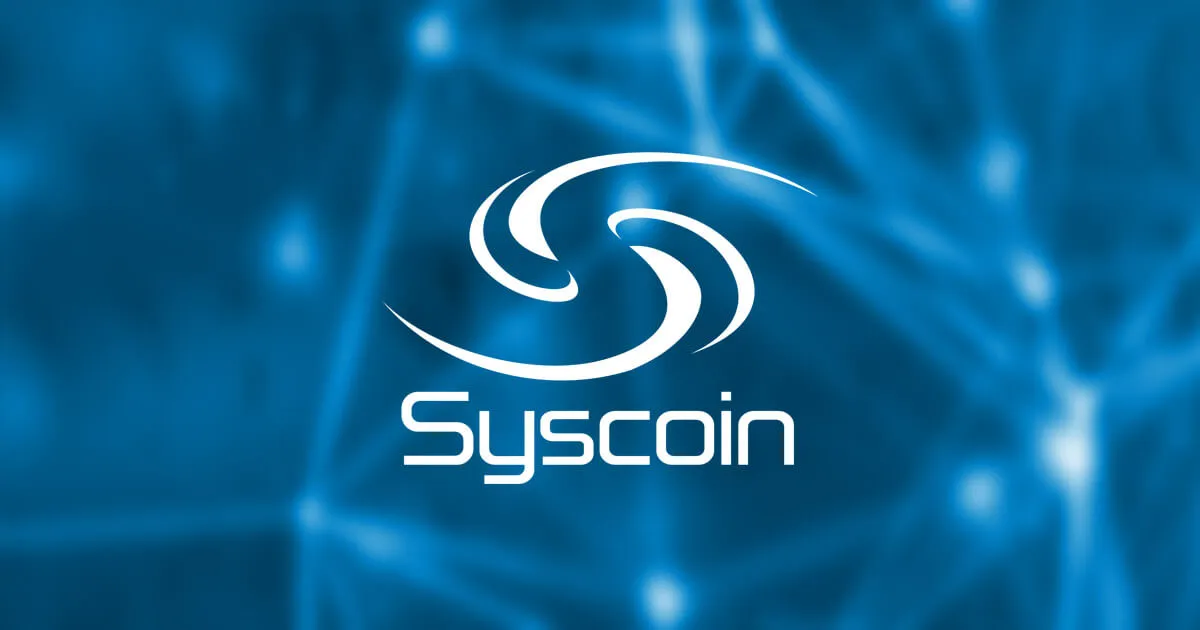
Syscoin Was Born in 2014 as a Clone of Litecoin. Now It’s Much More. During its first three years, Syscoin was essentially just another me-too Proof-of-Work ledger, with slower development work than the likes of Bitcoin or Litecoin. But in late 2017, Syscoin got a $3.3 million cash infusion. This helped reignite development, including Z-DAG, essentially a way for the network to confirm a transaction before it’s written onto a new block. That single innovation was pivotal. It turned an otherwise run-of-the-mill blockchain into something else entirely.
Syscoin Aimed to Fill the Need to Boost Transaction Speed
Using Bitcoin as an example, here’s what happens when you make a new transaction: First, you sign and broadcast your transaction. Second, it goes into something called the “mempool,” a digital holding bin for yet-to-bevalidated transactions. Third, Bitcoin miners prepare new blocks by pulling transactions from the mempool. Fourth, they validate the transactions. But that’s easier said than done. If you’re spending or trading your Bitcoin, before your transaction is validated, miners have to make sure you really have the Bitcoin. And they must verify you’re not double-dipping — spending or trading the same coins twice. Fifth, they race to solve a cryptographic puzzle, also a tough challenge. Only the winner gets to add his block of verified transactions to the blockchain and claim a reward for doing so. Sixth, the transaction is confirmed. Of course, all this is done for security and to prevent cheating. But notice how much stuff has to happen between the first and last steps in the Bitcoin process.
Typically, the process takes seconds to minutes. But back in the heyday of the 2017 bull market, transactions came so thick and fast, it often took Bitcoin hours to confirm them. For any crypto that aspires to function as a global payment system, that’s a deal-breaker. Nowadays, few people are griping about long, drawn-out delays in Bitcoin transactions. But that’s mostly because we’re just eight months past the end of a crippling bear market, when volume practically died. Crypto prices have recovered; public interest has not.
Z-DAG’s Breakthrough: Validating Transactions as They Enter the Mempool
With Syscoin’s Z-DAG, network operators validate new transactions upfront — on the way into the mempool. That’s a heck of a lot quicker. With Bitcoin, it takes only milliseconds for new Bitcoin transactions to hit the mempool. With new Syscoin transactions, it does take a tad longer. But that’s only because of the validation process. All told, each transaction still takes only a few seconds. That means users get their transactions confirmed almost immediately — no matter how long it may take to write new blocks to the blockchain. Think of it like giving a market order to your stockbroker. You typically get confirmation in seconds, even though it takes three working days for the trade to actually settle in your account. But for all intents and purposes, quick confirmation is all users really care about. The slow final settlement is just back-end paperwork — a mere formality.
That’s Z-DAG’s simple, yet very powerful upgrade: making mempool transactions as good as verified.
This allows an otherwise slow ledger — capable of maybe 20 transactions per second at most — to process up to 3,000 transactions per second. That rivals modern Proof-of-Stake ledgers — but with none of the trade-offs in decentralization and security that inevitably accompany moving away from Proof-of-Work consensus. This feature is so innovative, we wonder why the likes of Bitcoin or Ethereum haven’t made similar upgrades to their technology. Yet for whatever reason, this is not how most distributed ledgers work. Almost all wallets and crypto exchanges still make you wait for final settlement before they allow you to use the funds.
Z-DAG is the Defining Feature That Makes Syscoin Stand Out
Almost everything else about Syscoin is “been there, done that.”Governance, for example, is very similar to the mechanism used by Dash: Users holding at least 100,000 SYS tokens (presently worth about $2,600) can propose and vote on changes to the protocol. That’s a low enough threshold to allow almost any user to get involved. One thing Syscoin doesn’t have is advanced smart-contract capability. But the development team has built a “bridge” to Ethereum that allows users to “borrow” it whenever they need to leverage smart-contract technology. Overall, we don’t consider Syscoin a major leader in the crypto industry. But the small Syscoin team has managed to deliver a remarkable innovation, nonetheless. This is even more amazing when you consider their budget was far smaller than those of larger crypto teams.
Summarizing
Z-DAG technology is what makes Syscoin special. It allows for speeds far beyond those of classic Proof-of-Work blockchains like Bitcoin or Litecoin. In fact, Z-DAG is so compelling, we’re amazed other more-popular and better-funded crypto projects haven’t already copied it. Syscoin also gets points for governance features and interoperability with Ethereum that help improve security as well as provide smart-contract capability. Adoption: Here the picture isn’t nearly as good. Syscoin’s small development team has delivered some remarkable code. But it’s still small; its capabilities are relatively limited. Another issue: A single miner is responsible for about three-quarters of all block production. This makes Syscoin a centralized ledger. On top of that, usage is virtually non-existent, and end-user popularity is severely limited.
This is not financial advice. I don’t take into account of your personal investment objectives, specific investment goals, specific needs or financial situation and makes no representation and assumes no liability to the accuracy or completeness of the information provided here. The information and publications are not intended to be and do not constitute financial advice, investment advice, trading advice or any other advice or recommendation. Any expression of opinion (which may be subject to change without notice) is personal to the author and the author makes no guarantee of any sort regarding accuracy or completeness of any information or analysis supplied.
